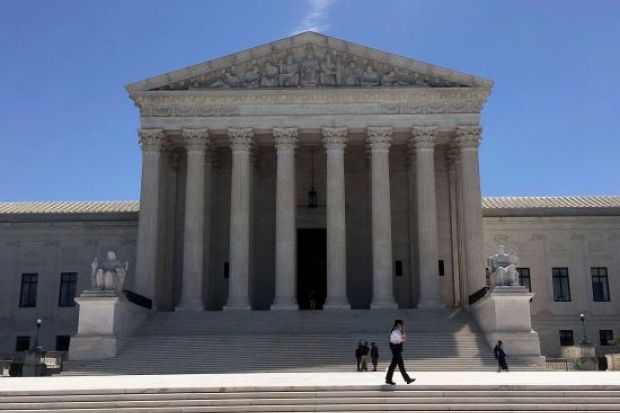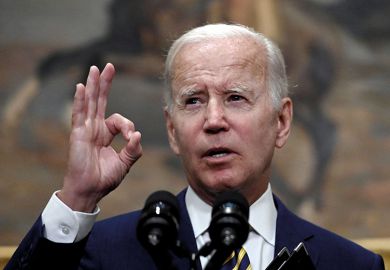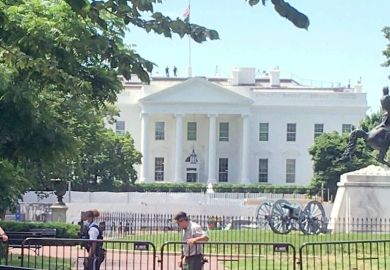The US Supreme Court has signalled its intent to reject Joe Biden’s promise of more than $400 billion (£330 billion) in student debt relief, with its conservative members overtly siding during oral arguments with Republican rationales for opposing the administration’s campaign-trail commitment.
During more than three hours of debate with parties in two separate cases challenging the Biden order, members of the top court’s 6-3 conservative majority repeatedly expressed reservations about allowing such a major financial decision for the country without being sure that Congress had expressly authorised it.
“This is a case that presents extraordinarily serious, important issues” concerning the nation’s constitutionally mandated separation of powers between the executive and legislative branches, said one of the conservatives, Chief Justice John Roberts.
Support for the Biden perspective was led by Justice Sonia Sotomayor, who warned her colleagues against interfering in the political process by blocking relief that would be going to 50 million former students. “What you’re saying”, she said to various state governments fighting the Biden order, “is: ‘Now we’re going to give judges the right to decide how much aid to give them.’”
Mr Biden announced the forgiveness action in August, after months of pressure from within his party to fulfil the 2020 campaign talking point. It would cut per-person debt by $10,000 to $20,000, with the forgiven amounts tied to a borrower’s wealth and limited to those earning less than $125,000 a year.
The administration asserted the right to take such action based on a 2003 law passed by Congress that grants the US education secretary the broad power to “waive or modify” any part of the federal student loan system during a national emergency, which in this case is the Covid pandemic.
The Trump administration formally declared the nationwide Covid state of emergency and then granted interest-free suspensions of student loan repayments during it, at a cost already far exceeding $100 billion. But Republican critics of Mr Biden complained that his broad grant of forgiveness was well beyond what Congress intended in 2003.
One of the two cases before the court was brought by six Republican-governed states – Arkansas, Iowa, Kansas, Missouri, Nebraska and South Carolina – that argued that the Biden order created an unfair subsidisation of college by other Americans. The second case was brought by two borrowers who argued that they had been unfairly excluded by its terms.
The Biden administration loan forgiveness plan has been suspended pending the Supreme Court’s decisions in the cases, which are expected in the summer.
While awaiting the court’s rulings, the Biden administration has moved on a separate and more legally established pathway to accomplish many of the same objectives, initiating a formal months-long process for implementing regulatory revisions that would fully forgive the federal loan debts of low-income former students, and cut average borrowing costs for undergraduates by half.
With the nation straining under a combined $1.7 trillion in student loan debt, the Biden administration also has expanded loan forgiveness opportunities for public-sector workers, and cancelled the debts of students at institutions, typically for-profit operations, that misled students about their future employment prospects.
After the Supreme Court session, the US secretary of education, Miguel Cardona, reiterated his administration’s promises to help students through a variety of actions, including putting more pressure on institutions to hold down costs.
Register to continue
Why register?
- Registration is free and only takes a moment
- Once registered, you can read 3 articles a month
- Sign up for our newsletter
Subscribe
Or subscribe for unlimited access to:
- Unlimited access to news, views, insights & reviews
- Digital editions
- Digital access to THE’s university and college rankings analysis
Already registered or a current subscriber?








